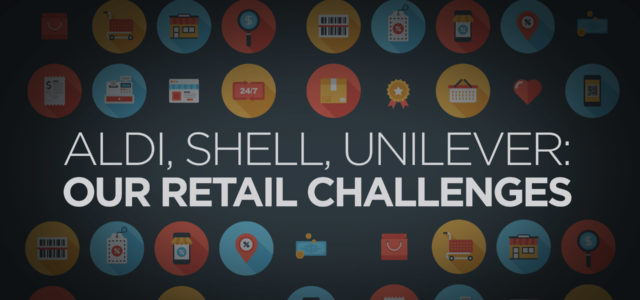Universal Accurate Information is my way of summarising the logical next step in the information revolution. While we are approaching the point of Universal Information, it is far from universally accurate. Opinions and commentary will remain subjective but there are simple facts that we are all incentivised to have validated as part of the process of sharing.
For example, while there are many ways an individual can digitally pass-on information purporting to be their name, address and date of birth to an interested party, the accuracy of that information falls to the receiving party to validate.
In a world of Universal Accurate Information, this information can be passed-on pre-validated. The receiving entity needs to do no further processing. Its accuracy is a fact of its transmission. It is as if, in the digital realm, it is no longer possible to lie about certain things.
This matters because it will solve the myriad of identity assurance headaches we currently face in our digital interactions. Moreover, most systems today do little more than collect, process, cross check and validate data. If it comes pre-validated, they are redundant and all the money we are spending on them today is wasted.
For good and for bad, our ability to transmit verified information about ourselves is about to improve and uncertainty about our information will diminish.
Why it is happening?
Information validated prior to transmission is needed to fully capture the potential of digital services.
From helping citizens switch bank accounts to improving the agility of public services, Universal Accurate Information has the potential to allow citizens to shape the services they receive around their individual needs.
Owning their own data and commissioning their own validation of that data via some kind of simple and unimpeachable “Citizen Vault”, citizens will no longer be at the mercy of painful top-down systems but the owners of powerful decision-making engines that can automatically switch bank accounts, change utilities providers, claim benefits or pay their taxes.
The creation of these “vaults” cannot be a government project. They must be built a range of private and third sector actors, regulated by government and chosen, based on ability to meet needs, by users – not by departments or committees. The challenge will be preventing those red-faced advocates of government platforms from delaying the inevitable in order to make their own vanity projects in places like the Rural Payments Agency look less profligate.
A Worked Example
Citizen X holds the details of their name, address, telephone number, date of birth, employment status, bank details, professional qualifications and utility service providers in “Citizen Vault”. Citizen Vault is a third party provider with government accreditation.
The Citizen Vault service is set around two central promises; first that all information it holds is accurate to an agreed standard and second, that it represents the interests of the individual using that service in navigating the digital world.
Citizen X decides to move from London to Manchester to take a new job and receives a pay rise in the process. As soon as the move is completed (validated by the conveyancing solicitors, estate agents, land registry or the past occupant’s own citizen vault) the decision making layer starts making automated changes.
First; all service providers and public sector bodies related to the previous address are informed with services cancelled. Then options for service provision at the new address are reviewed. Rates are reviewed for utilities providers, ratings are reviewed for schools and GP surgeries and car parking permits are automatically secured. Depending on the preference of the user, options are presented for selection at the click of a button or contracts are automatically engaged in.
The impact of the citizen’s new pay status is passed-on to HMRC and the citizen’s bank. The real-time record owned by the citizen of the tax they pay is updated within Citizen Vault. There is no need for HMRC to build an expensive system for citizens to access their records. In the digital age, citizens are more than capable of owning their own monitoring systems.
Other than providing proof to Citizen Vault of the move, the citizen has enjoyed an entirely automated transition to their new life.
One month later, Citizen X’s bank changes their interest rates and an alternative utilities provider cuts their rates. In both cases, Citizen Vault automatically switches to the most advantageous service provider. One year later, Citizen X loses their job. As the P45 is passed digitally to the Citizen Vault, it applies for the relevant benefits, reviews bank standing orders and scans listings for local jobs for which Citizen X’s validated qualifications make them suitable for.
In short, friction is removed across the system by the simple fact that each actor knows they are dealing with Universal Accurate Information.
While this worked example may sound utopian, it is based on holding only a handful of fields of pre-validated accurate information. The ability to do this exists today. The complexity is in facilitating the interfaces with service providers both public and private.
In the best functioning markets such as online retail we are seeing an early prototype already emerge. Today buyers increasingly choose goods from an online retailer and simply check-out using their Amazon validated details. For online payments, the days of sharing credit card details with anyone other than a single trusted data vault to conduct an online purchase are very nearly gone – it will soon be the same with myriad other information categories.
Complex Adaptive Eco-Systems – for good and bad
As we have seen from the worked example, the key feature of Universal Accurate Information is that it brings down the barriers between entities. In a world where utilities companies and banks are switched automatically by the citizen’s own decision-making layer, the individual’s sense of these service providers diminishes. They become shadow organisations within a complex ecosystem that adapts around the needs of the individual rather than the needs of the delivery institution.
These “complex adaptive ecosystems” sit at the heart of the consequences of Universal Accurate Information. The assumption so far has been that the adaptation will be in the citizen’s favour. However, we can already see examples of where Universal Accurate Information is starting to adapt an ecosystem in a way that supports some individuals but is deeply socially destructive.
Imagine a compartment within Citizen X’s “Citizen Vault” that holds their medical records including medication taken, real-time data from wearable technology and their personal genetic map. As with other data, this information is validated and known to be accurate. For a healthy and low-risk individual the adaptive ecosystem of healthcare insurance providers will compete to provide services at the lowest possible cost. The days of this individual having to subsidise higher-risk individuals because of a lack of data are over. Good news for them, but bad news for those in high risk categories and potentially destructive for social cohesion. Contrary as it may seem, ignorance is the cornerstone of insurance.
Ignorance is also the cornerstone of many successful and socially desirable second chances. In a world where CRB checks are increasingly required, do we really want the student teacher arrested during a drunken prank at university unemployable? Whether looking for a job at a primary school, looking for health insurance or trying to take any other step in life, it is clear that Universally Accurate Information about ourselves has problems as well as advantages.
It is in navigating these complexities; protecting the concept from deliberate obfuscation and nudging the complex adaptive ecosystems in the right direction that the future of government lays.
Why Government now needs to Go Systems-Free
Today, government spends billions processing and validating information. Historically it has processed this information in-house using armies of civil servants. The information revolution allowed this to be computerised and automated. These computerised validation processes were largely outsourced in the 1980s and 1990s. More recently, many of these services have been brought back in-house.
Critically, whether in-house or outsourced, whether automated or manual these services have all shared key features;
- They are systems designed to confirm the accuracy of information provided by the citizen
- They re-inforce the barriers between entities
- They are expensive and bad.
In a world of Universal Accurate Information, they are simply not required. The validity of information is no longer in question. In a world where almost every adult has a super-computer in their pocket, information does not need to be processed centrally.
However, more worrying than obsolescence, is the issue of the barriers that they raise between entities. A complex and adaptive ecosystem requires and drives lower barriers between entities as services coalesce around the individual.
Recent government attempts to build systems around the historic administrative boundaries of departments are not only expensive follies but also likely to actively hinder our ability to access the opportunities of Universal Accurate Information.
The future of government is systems-free and all government departments should stop building new systems and instead ask themselves, “how do we received this information in such a way that its validity is simply a fact of its transmission?”
Stopping the development of all information processing systems would be good news for both citizens and government because government spends a lot of money producing bad systems that citizens hate.
It seems that the Government’s Digital Service thinks this is because it has had bad people and bad suppliers in that past. The truth is simpler. Government can only ever create one version of a system and a committee decides its success. The private sector produces thousands of versions and the market (i.e. service users) decides which ones will succeed.
Against this reality government will never create great systems and it will never be able to keep up with innovation. Therefore, allowing individuals to process their own information via a system of their choice will be good for government and citizens alike.
However, the age of Universal Accurate Information does open-up a new role for government – that of regulator and adaptive policy maker.
Government as Regulator and Policy Maker in a Complex adaptive Ecosystem
Success of a system underpinned by Universal Accurate Information relies on four things:
- The belief in the accuracy and integrity of the “Citizen Vault” style systems
- Wide adoption of suitable interfaces by service providers – both public and private
- Regulation to protect social cohesion against the interest of the individual
- An agile approach to policy-making
In these 4 fundamental pillars lies the future role of government.
The first is most critical. It must take responsibility for the trust and reliability of “Citizen Vault” suppliers. There can be no grey areas. Every field of data held by vault providers must have a clear and unambiguous process to under-pin, validate and sustain accuracy. Only when this is clear will the government licence them as an accredited provider.
In driving wide take-up, their role could be to encourage the market by being an early adopter. The shift from buying systems to accessing those owned by citizens does not have to be a complex one. What is more it does not have to mean the sudden end of the old systems. Legacy systems can simply be allowed to slowly become unused as a gradual shift towards systems-free government emerges.
To solve the loss of ignorance riddle, Government will have to go back to the things it is genuinely good at – converting the will of the people in to policies designed to make us better as a society than we are as individuals.
Linked to this is the ability to adapt policy to individuals, to experiment and to add as layers on existing policy without adding complexity of overheads to individuals. This vision of the future is the opposite to those that would like to see small government through simple catch-all solutions like flat taxes. This vision of the future sees small government enabled by the super computers in the pockets of citizens. This allows governments to develop policies as tailored or as blanket as they see fit. To take advantage of this, government will have to become more nimble and data-driven in the way they create policy.
Impact on Government Services
Complex Adaptive Ecosystems enabled by Universal Accurate Information is a thread that will weave through every government reform for the next 50 years. It will enable some things to be possible for the first time and it will make others impossible.
The most obvious and immediate impact will be a massive reduction in tax payer pounds spend on expensive centralised systems. Citizens will commission their own IT from a group of service providers accredited by government. Government will be allowed access to some of this information on the citizens’ terms. While government will have to be more IT literate and capable than ever, the days of industrial processing of the data of millions of citizens are gone.
The next obvious impact will be a massive improvement in efficiency. With citizen information universally accurate, friction within the system will be reduced. From social care visits to housing benefit; fraud will be reduced, efficiency will be improved and services will be delivered faster and cheaper.
Less intuitively, there will also be significant adaptations required on the part of government. Much like the ignorance riddle alluded to above; government also has a fail-to-claim riddle. Many services provided by government are only affordable to the taxpayer by virtue of the number of people who fail to claim them. In the worst cases, this is a destructive cross-subsidy from the most in need to the most informed. Through the use of adaptive decision making layers, Universal Accurate Information has the potential to end failure to claim and ensure that all citizens are provided with the social services they are due. This is likely to require a re-think in policy and is likely to bring with it complex political choices.
Universal Accurate Information will re-orientate public services around the citizen. This has profound impacts for every citizen and every public servant. Just as individual banks have less relevance in a world where a decision making layer switches between the best deals at the time; so ancient administrative bastions will crumble in the public sector. In a world where citizens process their own information, where decision making layers provide their service support and accuracy is a fact of transmission – great administrating empires like DWP will become simply policy making organisations.
At its most extreme, one can envisage a future in which DWP is no more than a small team of advisors and analysts around a ministerial team. Policy implementation simply involves publication of the new policy. As a systems-free entity, it would be down to services like “Citizen Vault” to adapt the system and its integrations. The MI coming back from this would provide instant feedback to the policy making group.
This ability to instantly implement policy and to receive clear feedback through data will also change the nature of political discourse. Ideas (rather than administrative competence) will become the key differentiator at elections. The ability to test and experiment will require a new approach to “U-turns” and political consistency – getting it wrong will have to be seen as part of getting it right.
There is no part of government or public life that will not be impacted by the fact of a citizen being able to process their own information and transmit it pre-validated as accurate. From the citizens’ cradle to grave, every public service will experience the benefits and challenges of going systems free and allowing citizens to process their own information and commission their own services using the super-computer they have in their pockets.
Where to Start
Having discussed the implications of Universal Accurate information out towards the next 50 years, it is worth considering where to start on this journey.
Our response is simple. Pick a service. Pick any service where the centralised government system of validation is getting tired and, instead of building a new one, imagine a systems-free solution.
The old system does not have to be decommissioned, no members of staff have to be let go, no business case is required. It simply requires a leap of imagination.
A simple example would be residents’ parking permits. The start point for Universal Accurate Information does not have to be a big government department. It may well be that a small council are first to start taking advantage of its potential.
Like many Government process, it is best broken down in to its component parts. To obtain a residents parking permit, the citizen must prove that:
- they are who they say they are;
- they live where they say they live;
- they own the car in question;
- it is insured and;
- they have paid their council tax.
These are 5 simple pieces of information that councils all currently process centrally through a variety of systems and outsourcing deals. This is expensive and usually delivers a lower service standard than that expected by the citizen. Instead, councils should get the citizen to use their own computing power to process and pre-validate this information.
The simplest way to start anything is by doing it. The first pioneering council simply has to list the data fields it requires, list the level of proof it requires for each and offer a unit price to any “Citizen-Vault”-style provider that can deliver these fields to the council pre-validated. Importantly, there is no need to disassemble the existing system at this point, it is a complimentary measure.
Instead of dealing directly with the council, citizens now have a choice of a small number of accredited digital providers through which they can obtain their parking permit. The one that is simplest to use will attract the most users and, as they are paid by the council on a unit price, they will receive the most money. The IT service providers are now incentivized to please the citizen rather than the contracting authority – an important and far-reaching switch of focus.
A new resident to their local authority applies for their parking permit using one of these systems. Now that they have their personal details pre-validated, they can also use it to change their utilities providers. The local GP, soon surgeries, pick-up on this data vault service and so offer the provider a price-per-unit for anyone who registers with them using it, an so it goes on.
Soon a variety of local and national services are all seeing the need to centrally process data drop as citizens take more and more responsibility for pre-validating their own information. For the citizen, a simple app used to get a parking permit has now become a hub through which they manage a variety of public and private services. It is slick and user-friendly and changes daily to keep up with the intense competition from other providers. This drives improvements in the interface and, critically, in the decision support layer too.
For each public body that has made this transition to a systems-free approach, there has been no business case, no complex programme and no dramatic de-commissioning. The public body has simply opened a complimentary channel through which citizens can pass on information and it is a channel owned and controlled by the citizens themselves.
For public bodies interested in trying to pioneer this route, I have created a simple 6 point check list:
- If you’re planning to build or buy a system designed to process citizen data stop;
- If your organisation requires processed data, consider how it could be processed by the citizens themselves prior to transmission;
- Stop paying for systems and start paying for pre-validated data;
- Transition to pre-validated data in parallel to running your existing systems. Decommission slowly as demand for your in-house system starts to fall;
- Stop listing requirements to the market and start setting validation standards and prices and see what happens;
- Protect the consumers’ ability to choose between various providers at all costs.
Finally, if this is of interest and you would like to discuss how to take it forward and be one of the pioneers, please get in touch with me. I am dedicating my career to this concept as I believe it is the key that will fully unlock the potential of digital services.
Read more about Jack Perschke, here
Article by channel:
Everything you need to know about Digital Transformation
The best articles, news and events direct to your inbox
Read more articles tagged: Featured






